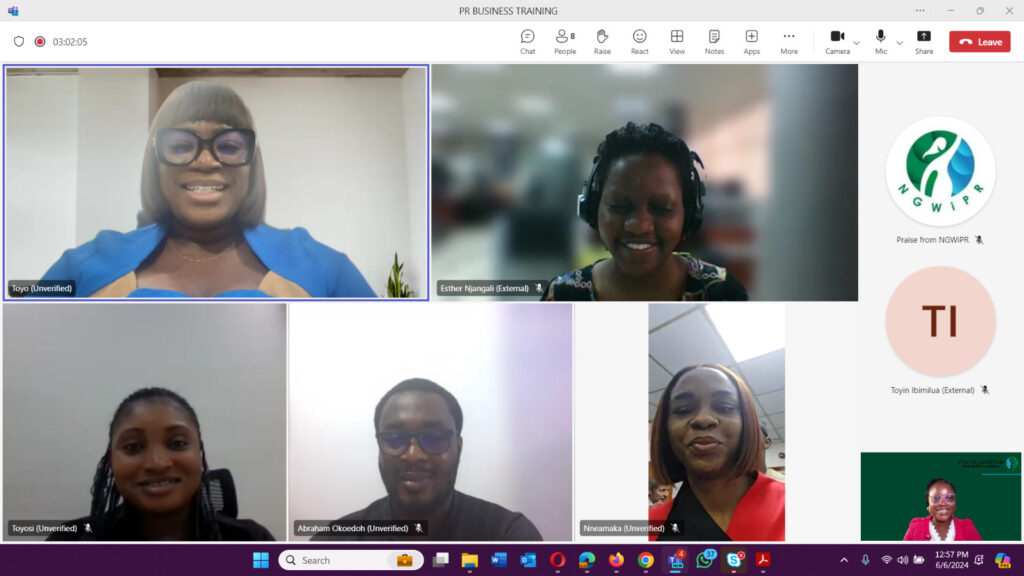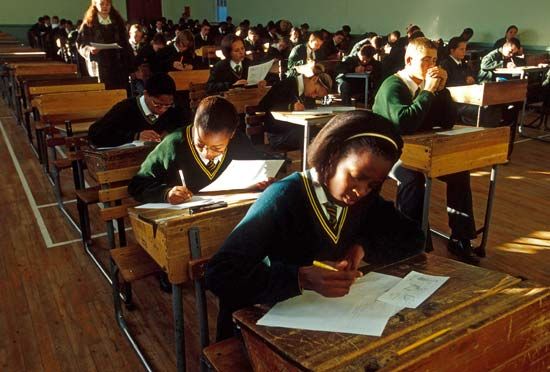The Assembly of Heads of State and Government of the African Union (AU) has declared 2024 as the Year of Education[1], calling on governments across Africa to accelerate progress towards achieving Sustainable Development Goal 4 (SDG4): “Ensure inclusive and equitable quality education and promote lifelong learning opportunities for all”, recognising the transformative power of education in fostering a sustainable and equitable world.
“Education serves as a cornerstone in a country’s development, and its absence makes meaningful progress unattainable across all sectors, including the African events and exhibitions industry,” says Devi Paulsen-Abbott, Chairperson of the Association of African Exhibition Organisers (AAXO).
Human capital development through education and skills development plays a pivotal role in shaping a country’s economic landscape and by investing in education and skills training, countries in Africa can build a skilled and knowledgeable workforce, which is essential for economic growth and development. Moreover, education serves as a powerful tool for poverty reduction by providing individuals with the necessary knowledge and skills to secure better jobs and improve their livelihoods and promotes entrepreneurship by fostering innovation and equipping individuals with the skills, knowledge, and mindset needed to identify opportunities and create new businesses.
Additionally, education and skills development enhance labour productivity, leading to higher economic growth rates and increased global competitiveness. “In today’s rapidly globalising economy, countries and sectors that prioritise education and skills development are better positioned to attract foreign investment, participate in global value chains, and compete effectively in the international marketplace,” adds Paulsen-Abbott.
Considering the impact of education and skills development in African countries, members and stakeholders of AAXO have shared their perspectives on the opportunities that education has offered the events and exhibitions sector locally, along with the challenges encountered:
Libya
In Libya, collaboration between organisers, venues, suppliers, and institutional organisations with educational institutions has become fundamental in supporting training and development for industry professionals in the MICE sector. These collaborations often involve joint initiatives such as internships, mentorship programs, guest lectures, and hands-on training sessions conducted by industry experts with the investment in education not only providing valuable learning opportunities for aspiring professionals, but also contributing to the overall growth and sustainability of the local sector.
“Significant evolution and improvement in the MICE sector, both in Libya and across the continent, have been observed as a result of investments in education and skills development,” says Eng. Nader Ben Yala, CEO of Waha Expo. “Through targeted educational initiatives, skills enhancement programs, and capacity-building efforts, there has been a notable rise in the professionalism, quality, and innovation within the industry. As professionals become better equipped with the necessary knowledge and expertise, they are able to deliver more engaging, impactful, and successful events.”
The investment in education has also fostered a culture of continuous improvement and adaptation, enabling the MICE sector to stay abreast of emerging trends, technologies, and best practices. Overall, education and skills development have played a pivotal role in elevating the standards and reputation of the MICE sector not only in Libya but across the African continent.
Kenya
Education and skills development are proving to be pivotal in driving the growth and enhancement of the MICE sector in Kenya and across East Africa. “Traditionally, there has been limited intentional collaboration among industry stakeholders, but recent initiatives are increasingly focused on integrating theoretical learning with practical applications. These partnerships foster internships, guest lectures, and real-world projects, providing students with invaluable hands-on experience,” says Harry Hare, Co-Founder and Chairman at dx5ve, formerly CIO Africa.
Investments in education and skills development have significantly transformed the sector (with the impetus for this transformation partly catalysed by the COVID-19 pandemic) which compelled organisations to innovate or risk obsolescence, prompting substantial investments in upskilling their teams to adapt and devise new approaches.
The emphasis on education and skills has not only elevated the quality and efficiency of service provision but has also bolstered East Africa’s ability to attract international events, propelling tourism and related sectors. Ultimately, these advancements are positioning East Africa as a formidable contender in the global MICE market.
South Africa
Education and skills development are essential to the growth and success of Africa’s MICE sector. As interest in this industry continues to rise in Africa, it is crucial to invest in education and professional development to fully harness its potential to contribute to economic growth and development.
In today’s fast-paced and ever-changing industry, professionals must constantly update and improve their skills in order to remain competitive. AAXO is committed to providing their members with the necessary tools and opportunities to do so, ensuring a thriving and sustainable exhibition/events/MICE sector. As part of their mission to support the industry’s growth and sustainability, AAXO priorities vocational training and education and believe in equipping individuals with the necessary skills and knowledge to excel in their roles and have a more diverse and inclusive industry.
“To achieve this, we collaborated with organisations like the International Association of Exhibitions and Events (IAEE) in 2021/22 to offer accredited courses and provide valuable insights through our Lunch and Learn series in 2023. We also conducted surveys amongst our members to identify knowledge gaps and training needs, tailoring our initiatives accordingly,” says Paulsen-Abbott.
In line with AAXO’s commitment, they are excited to present the AAXO Leadership Summit on June 4, 2024. This event will feature practical workshops focusing on critical areas such as sales strategies, sustainability, media engagement, and team building through coaching and mentoring. These workshops aim to provide quality career and leadership development opportunities for professionals and new entrants in the industry.
The South African government recognises the importance of skills development in building a sustainable economy. Through initiatives such as internships, funding for short-skill programs, and bursaries, they aim to create an environment that attracts skills and encourages companies to invest in the country.
“As we celebrate Africa Day in 2024, we must prioritise education and skills development within the MICE sector. Through partnerships and collaborations, we can equip our workforce with the necessary skills and knowledge to drive economic growth and development in Africa. Education is the key to unlocking the full potential of the MICE industry and building a brighter future for Africa,” concludes Paulsen-Abbott.
For more information on AAXO, visit www.aaxo.co.za
[1] https://edutab.africa/2024/03/20/african-unions-theme-for-2024-educate-an-african-fit-for-the-21st-century-building-resilient-education-systems-for-increased-access-to-inclusive-lifelong-quality-and-relevant-learning-in-afr/#:~:text=In%20February%202023%2C%20during%20its,Development%20Goal%204%20(SDG4).











